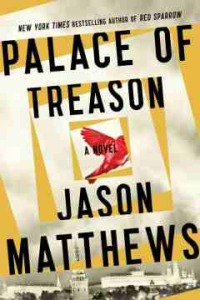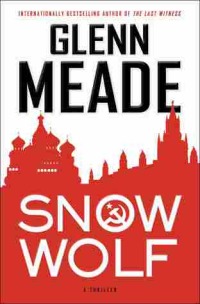Condor in the Stacks by James Grady and The Little Men by Megan Abbott
 Wednesday, February 24, 2016 at 7:32AM
Wednesday, February 24, 2016 at 7:32AM MysteriousPress.com is publishing (in digital form) a series of stand-alone stories by popular crime authors in which books, bookstores, libraries, or manuscripts play a central role. I don't usually review individual short stories, but I'm making an exception for the Bibliomysteries series because the concept is interesting and the authors are well known.

"Condor in the Stacks" by James Grady was published digitally on February 23, 2016.
Condor fans know from reading Last Days of the Condor that the Condor, sometimes known as Vin, was heavily medicated and given a (supposedly) safe and undemanding job at the Library of Congress, sorting books into bins for reshelving and recycling. Vin thinks pretty much all books should be saved. That attitude makes him well suited for the Bibliomysteries series.
Vin tries to kick back his sedation long enough to help a library employee named Kim who thinks she is being stalked. Meanwhile, he tries to solve the puzzle of why he packed seven coffins full of books for recycling but nine coffins are being hauled away.
The plot is beyond far-fetched and it isn’t fully developed. I'm not sure it even makes sense. Still, it entertained me. I liked the story, but not nearly as much as I liked the last Condor novel, which had a depth of character and intricacy of plot that can be difficult to achieve in a short story. I probably would not recommend this story to readers who did not read and enjoy Last Days of the Condor.
The text of the story mentions or alludes to about a dozen authors. James Grady acknowledges them at the end, which is helpful for readers who recognize, but can’t quite place, an allusion. I am one of the readers who benefitted from reading the acknowledgements.
Judging from Amazon reviews, some readers are turned off by Grady’s writing style, which is far from conventional. Odd punctuation, sentence fragments, and stream of consciousness sometimes take over the narrative. The frenzied, off-kilter style reflects Vin’s shaky mental status. I like it for that reason but I realize that it puts off readers who are looking for straight-forward prose. If you are one of those, be warned that this might not be the story for you.
RECOMMENDED

"The Little Men" by Megan Abbott was published digitally on September 15, 2015
In 1953, Penny went to Hollywood to pursue her dream of fame. Like most wannabe actresses, she found a less satisfying life that the one she pursued. At night, she consoles herself with the books that came with a surprisingly affordable bungalow that she rents in the canyon. Her neighbors soon reveal that the rent is affordable because nobody wants to rent the bungalow where the bookseller killed himself. Or did he?
This is a story of bad dreams and spooky nocturnal noises and shadows on the walls. A mystery with the flavor of a horror story. Like Psycho, the story asks the reader to divine the secrets of a spooky place. Are the horrors that Penny experiences real or imagined?
A well-crafted story, “Little Men” creates a visceral atmosphere and gives flesh to its characters. The story resolves with a couple of unexpected twists. Most of the stories in this series have been quite good, and this one is no exception.
RECOMMENDED
 TChris |
TChris |  Post a Comment |
Post a Comment |  James Grady,
James Grady,  Megan Abbott,
Megan Abbott,  short stories,
short stories,  spy in
spy in  Thriller
Thriller 


